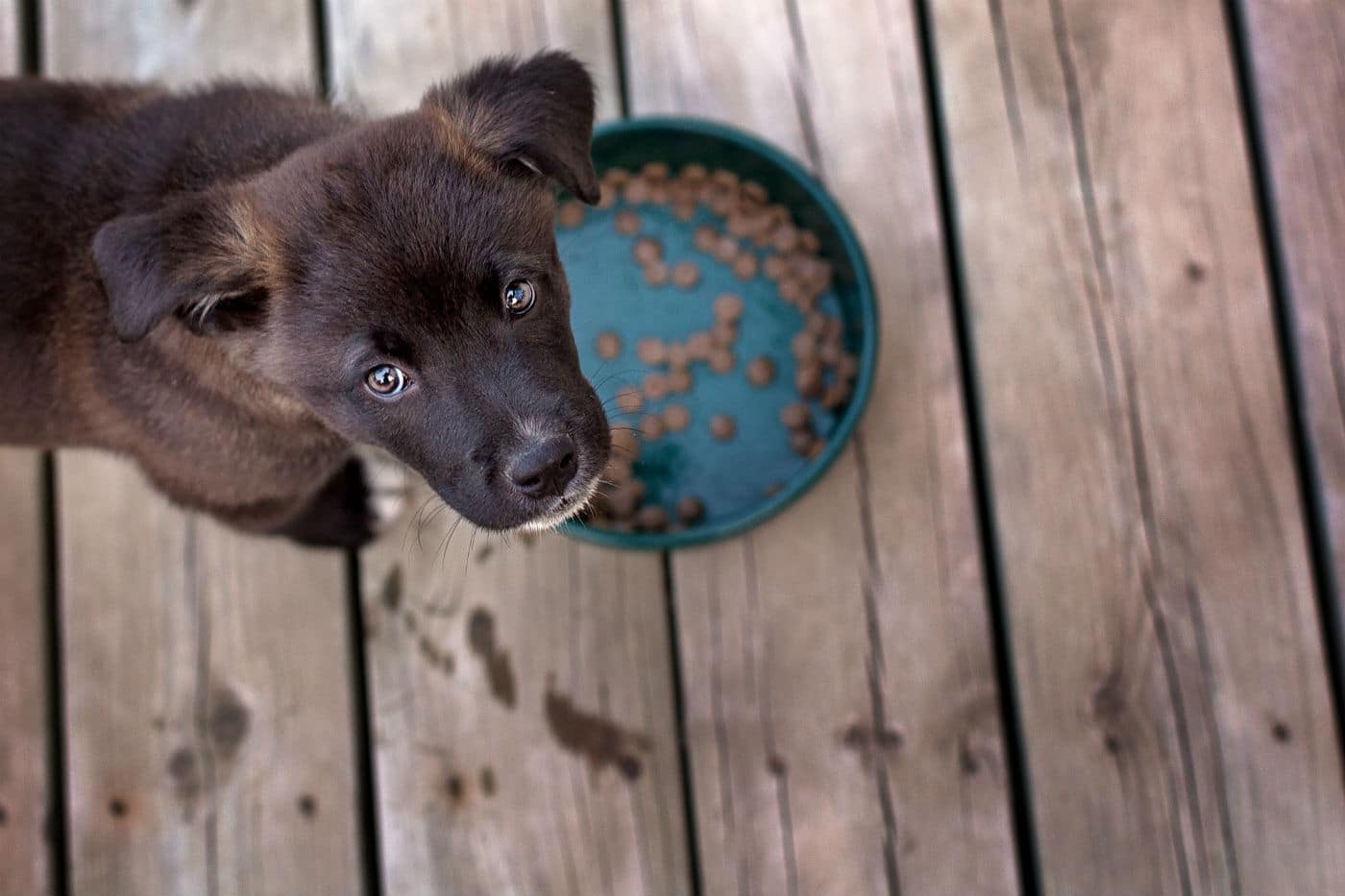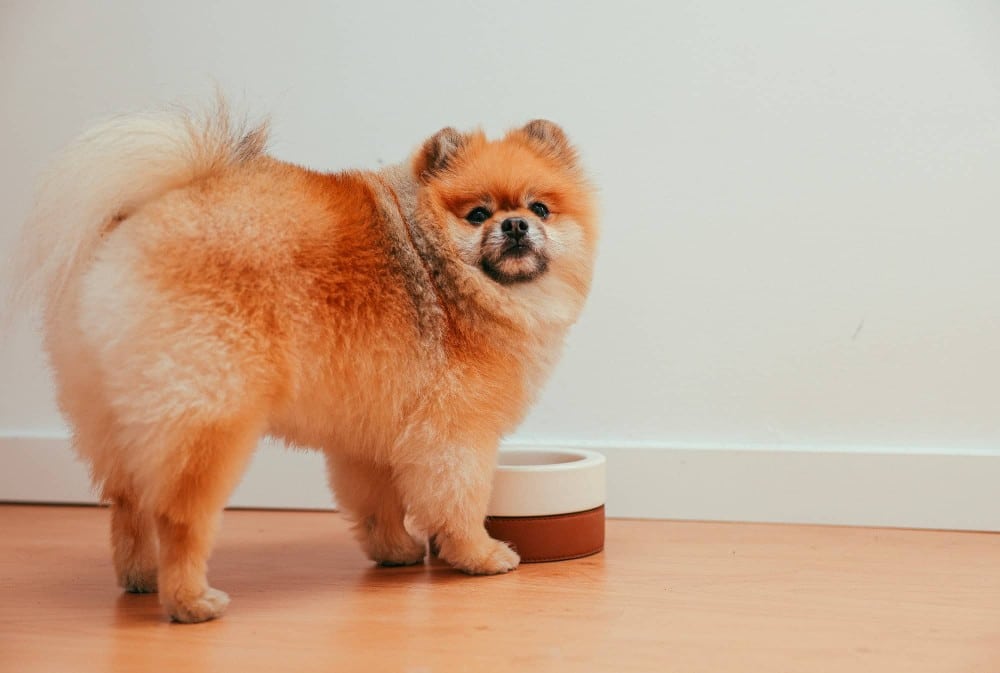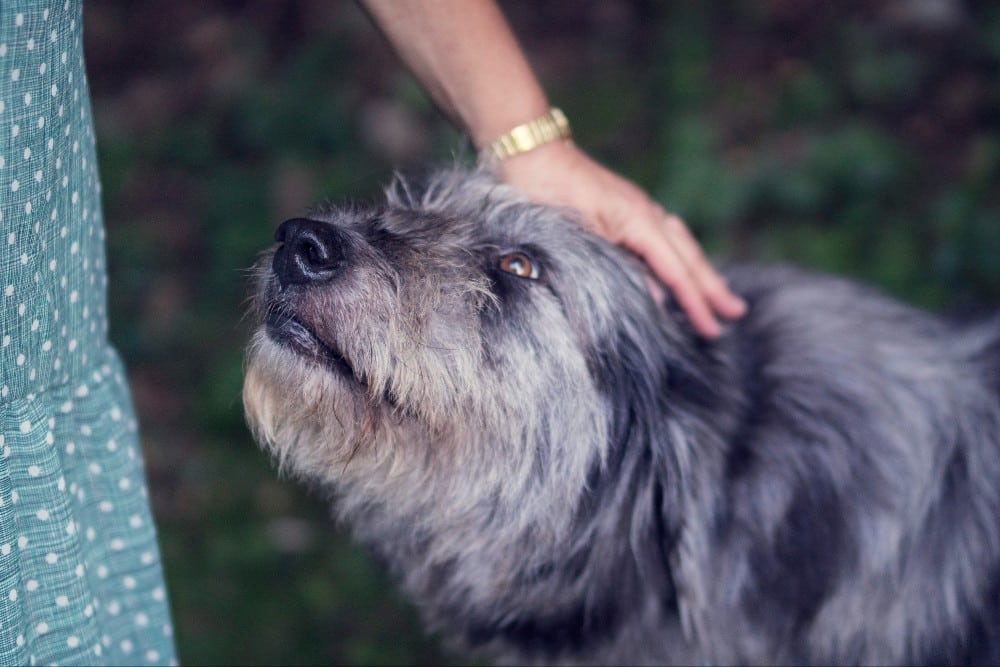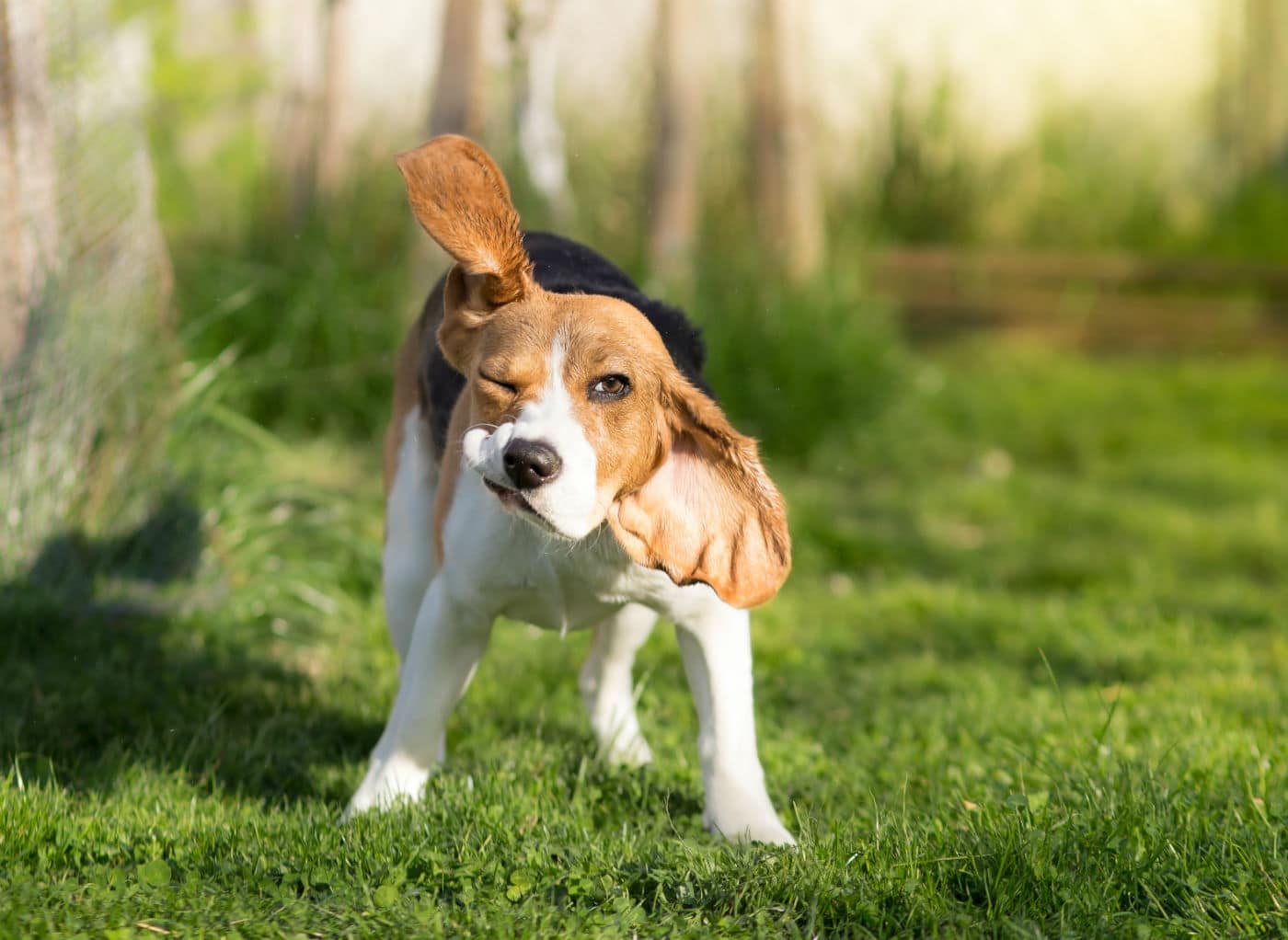Just like babies, puppies need specific food, as they have different nutritional needs than adult or senior dogs. In fact, not feeding your puppy the correct food can have serious developmental consequences.
“Puppy food is an important element of growth for muscles, bones, neurologic heath and overall wellness,” says holistic veterinarian Jim D. Carlson, who’s also host of a Vet Advice Podcast and Awesome WooWoo Holistic Vet.
Puppies need more calories to maintain their body temperature, more amino acids to support their growth, more calories from protein and fats and more minerals such as calcium for growing bones. “Puppy foods have about 4 percent more protein than adult foods, so sticking with straight puppy food for a year is important,” notes Dr. Carlson.
While you can feed an adult dog puppy food (though it’s not recommended, and it may cause weight gain), feeding a puppy adult dog food may significantly impair their health and growth. So how do you know when it’s time to switch your puppy to an adult diet?
Unfortunately, it’s not a one-size-fits-all situation. Although dogs are generally considered to be puppies until they are a year old, the need to feed puppy food varies with the individual dog and even with breed.
Related: The Rules of the Game: How to Keep Your Puppy Safe During Playtime
If you have a puppy (and before you decide to get one), you should do as much research on what puppies need. That includes things like care, feeding and training. You should also talk to your veterinarian about the best food choices.
Here are some tips to help you figure out when it’s time to switch your fur baby to grown-up food.
Signs That It’s Time for Adult Dog Food
Both age and weight play a factor in making the switch. For example, says Dr. Carlson, if your puppy is close to a year old, and he’s getting chubby, it might be time to switch. Adult dog food has less protein than puppy food and less calories.
“One important difference in puppy food needs is in breeding,” notes Dr. Carlson. He says that big breeds, like Great Danes, take longer to stop growing and may benefit from an additional year on puppy food.
Puppies should generally switch to adult dog food when they reach a certain age, weight, and/or growth. This works out approximately:
Toy Breeds: The adult weight of toy breeds is generally 4 to 7 pounds (though a toy can go as low as 3 pounds). They usually finish growing at around 10 to 12 months.
Small Breeds: The adult weight of small breeds is around 8 to 20 pounds. They usually finish growing at around 12 months.
Medium Breeds: The adult weight of medium breeds is 21 to 50 pounds. They usually finish growing at around 12 months.
Large Breeds: The adult weight of large breeds is 51 to 85 pounds. They reach maturity at around 18 to 24 months.
Giant Breeds: The adult weight of a giant breed is more than 85 pounds. They reach their adult growth at around 18 to 24 months. Another indicator is when they grow into their paws.
Related: You Can Thank Us for Those Puppy Dog Eyes
This is only a general guide and will vary with the individual dog, but it should serve as a baseline.
How to Switch Your Puppy’s Food
When it’s time to switch your puppy to adult food, you should do it slowly. Switching too quickly may cause stomach upset and gastrointestinal issue such as vomiting or diarrhea. Leading up to the change, be sure to research your food options.
There is more than commercial food available, such as fresh food delivery services. You can also learn how to make your own home cooked dog food, including the proper supplements that needed to be added to the food.
Dr. Carlson recommends swapping ¼ of your dog’s meal each week to adult food until you fully transition into adult food. So, on the first week, you’d give your dog ¼ serving adult food and ¾ puppy food; on the second week, you’d do ½ adult food, ½ puppy food. This allows your pups stomach to get used to the new food (along with her taste buds).
While going slow shouldn’t make your dog’s tummy upset, if you do notice signs like gastrointestinal rumbling, diarrhea, constipation or vomiting, take your pup to the vet.
Related: Could Looking at Adorable Puppy Pictures on the Web Actually Make You More Productive?




















